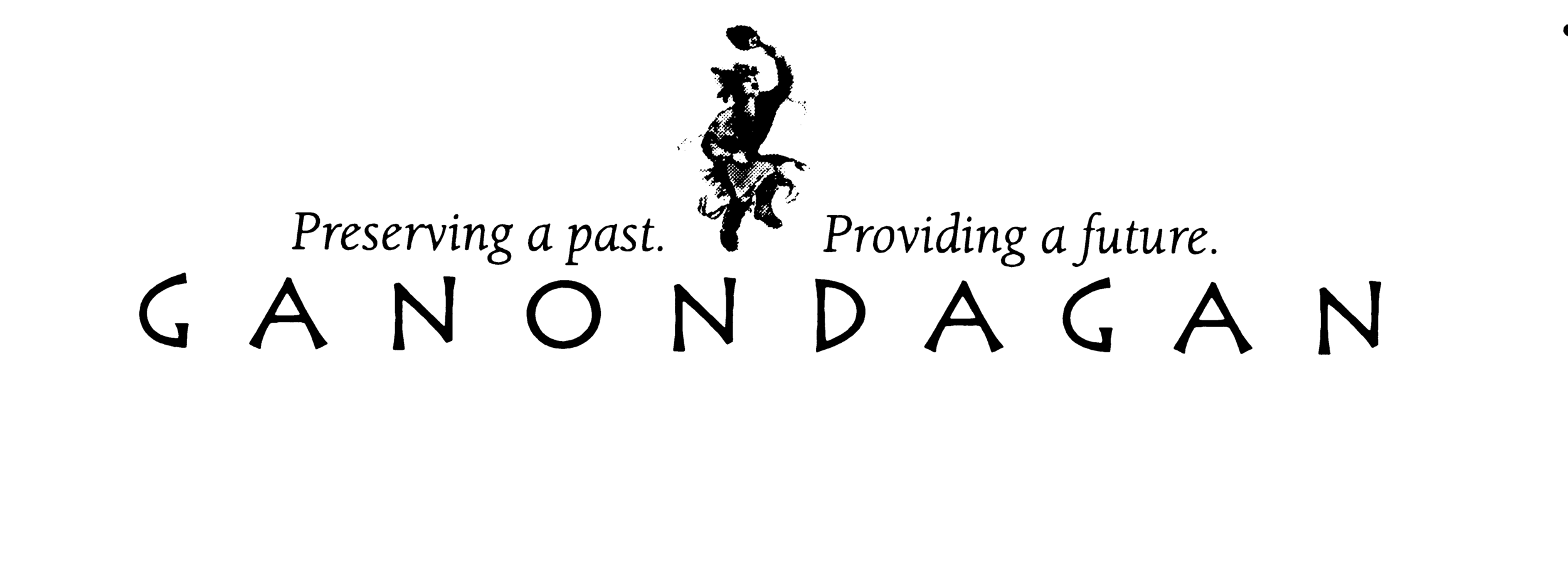Friends of Ganondagan
Board of Trustees, VICE PRESIDENT
The Friends of Ganondagan lends physical, spiritual, and financial support to Ganondagan State Historic Site. The Friends of Ganondagan believe in preserving and promoting the Message of Peace by fostering an informed interest in Native American history and culture–in particular, the Seneca relation to the Haudenosaunee (Iroquois) Confederacy.
Memorial Art Gallery
Art committee
MAG’s Art Committee maintains jurisdiction over all acquisitions to and deaccessions from the permanent collections of MAG, either by purchase, bequest, transfer, abandonment, exchange, gift or sale. Committee also advises museum President and Board on art collection matters including authorization of loans of works of art to other institutions. One of two non-Board Managers invited to join committee.
Rochester Museum and Science Center | Same Sky
DESIGNER
Same Sky explores the universal importance of sky watching through unique cultural perspectives. Developed in partnership with Indigenous Knowledge Keepers, this permanent exhibition at the RMSC Strasenburgh Planetarium illuminates Haudenosaunee, Diné, and Maya approaches—both ancient and contemporary—to observing and understanding the sky and celestial bodies.
Collaborators: Tonia Loran-Galban (Akwesasne Mohawk, Bear Clan), Jamie Jacobs (Tonawanda Seneca, Turtle Clan), Nicole Scott (Diné), Gina Kanbalam Miranda (Maya calendar keeper).
Rock Foundation | 17th century Seneca Artifact Reproduction
project leader
Collaborated with RIT AM Print Lab to 3D scan 17th century Seneca artifacts, a Plaedis sky mapped shell and a celestial-themed gorget. Technology afforded new opportunities for community partners, the Rock Foundation Rochester Museum and Science Center, to research and display items.
Ganondagan NY State Historic Site | Ganöhse:s
PROJECT LEADER and instructor
A virtual Seneca longhouse was created to bring the Seneca Bark Longhouse at Ganondagan State Historic Site into the virtual world. Worked with RIT 3DDD student to document longhouse using photogrammetry. The Longhouse is furnished as closely as possible to an original 1670 longhouse, with replicas of European and colonial trade goods, items created and crafted by the Seneca… crops, herbs, and medicines grown, harvested, and preserved by the Seneca. Project developed with support of PIT–UN Public Interest Technology in Tribal Communities Grant.
Ganondagan NY State Historic Site | One Dish, One Spoon
project leader and instructor
A cultural educational game created to further the mission of Ganondagan NY State Historic Site: telling the story of the Seneca and Haudenosaunee contributions to art, culture and society for more than 2,000 years to the present day. Worked with RIT Computer Engineering graduate student to develop the interactive game for students and educators, especially those in 4th grade classrooms across New York State. Project developed with support of PIT–UN Public Interest Technology in Tribal Communities Grant.
Seneca Art and Culture Center | Deohako Merchandise
Designer and mentor
Deohako artwork was created for Friends of Ganondagan in celebration of the three sisters—corn, beans, and squash. The work is featured by the Seneca Art and Culture Center Gift Shop in a collection of merchandise that was launched at Ganondagan’s 2019 Indigenous Arts and Music festival. Proceeds support programming at Ganondagan NY State Historic Site throughout the year.
Designed in collaboration with local Seneca youth.
Veterans Outreach Commission | EUREKA!
Advisor
EUREKA! is an annual intensive interdisciplinary workshop with juniors, seniors, and grad students from across the five RIT School of Design disciplines. Students work together in small teams to use design thinking and creativity to come up with strategies and concepts to address social issues. EUREKA! is organized by Graphic Design professor Lorrie Frear, and supported by dedicated interdisciplinary faculty including me.
EUREKA! partnered with Veterans Outreach Commission of Rochester, NY in 2019.
Rochester Refugee Resettlement Services | EUREKA!
ADVISOR
EUREKA! is an annual intensive interdisciplinary workshop with juniors, seniors, and grad students from across the five RIT School of Design disciplines. Students work together in small teams to use design thinking and creativity to come up with strategies and concepts to address social issues. EUREKA! is organized by Graphic Design professor Lorrie Frear, supported by dedicated interdisciplinary faculty, and sponsored by Cause Collaborative.
EUREKA! partnered with Rochester Refugee Resettlement Services in 2018 and as Advisor, I collaborated with Prof. Frear and facilitators to facilitate student learning and cultural responsibility. Three of my former students returned to campus as alumni facilitators: Mike Kelly (MFA’17), Dan Grinthal (BFA’18) and Shaemus Spencer (BFA’17)—and Mike was not only Lead Facilitator but also Design and Innovation Lead from Rochester Refugee Resettlement Services! He has already begun implementing the innovative solutions proposed by the students.
Ganondagan NY State Historic Site |Cultural Experience Design
DESIGN CHARETTE & EXHIBITION, PROJECT LEADER and Instructor
In 2017, I led a community-engaged project in which RIT's nearly 300 Industrial Design undergraduate and graduate students to develop design concepts both with and for Ganondagan State Historic Site (Victor, NY). Once a vibrant center for the Seneca people, Ganondagan is now a permanent interpretive site that tells the over 2,000-year-old story of Seneca and Haudenosaunee contributions to art, culture and society. My role included securing sponsorship, developing the RIT/Ganondagan partnership, and leading a cross-organizational and interdisciplinary team in designing and implementing the charrette. At the request of sponsor, I also delivered a presentation on cultural appreciation vs. cultural appropriation for students.
49 teams (5-6 students/team) responded to briefs, co-created by RIT and Ganondagan, specifying “appropriateness to the Ganondagan site and Haudenosaunee values." Each team designed concepts for one of the following:
Wayfinding
Resting stations
School tour experience
One project was eventually implemented, and the others continue to inspire change at Ganondagan
Ganondagan NY State Historic Site | Wayfinding
Permanent Installation, Project leader and instructor
Since T-Minus (see above), I have continued to collaborate with Ganondagan State Historic Site professionally. In Fall 2017, I developed an interdisciplinary course addressing culturally appropriate design through a community-engaged project with Ganondagan. Students developed a site-specific wayfinding system respecting Haudenosaunee culture and aesthetics. Student installed in 2018.
Inspired by a map concept created by T-minus team Dewashëh Degyöʼ (see above), RIT students Jordana Deutsch (ID ’18) and Matthew Hough (GD’19) worked with Ganondagan State Historic site to refine the proposed design. The singular map evolved into a wayfinding system that not only welcomes visitors to the site but also guides them through 569 acres of trails.
Creative Startups
Board of Directors
Creative Startups is the leading global startup accelerator educating and investing in creative entrepreneurs, startups, and growth companies in the Americas, Europe, Asia, Middle East.
Read the Creative Startups Impact Report to learn more about the organization and/or the creative economy! >>
Baltimore Creatives Acceleration Network (BCAN) | Founder Fellows Program
Juror & Mentor
BCAN works towards a stronger, more equitable creative ecosystem and economy in Baltimore. Its Founder Fellowship program offers a business boot camp and incubator residencies for growth-track creative enterprises in their startup phase.
Selected inaugural cohort and, as Mentor, advised entrepreneurs and critiqued product/service designs, business strategies, and communication during one-week deep dive for inaugural cohort of Fellows. Ten companies participated.
Creative Startups | ABQ Accelerator
mentor
Albuquerque, NM, was the location of the first Creative Startups Accelerator, now the leading accelerator program for creative entrepreneurs worldwide.
As a Mentor, I advised entrepreneurs and critiqued product/service designs, business strategies, and communication during one-week deep dive. Ten companies participated.
Indigenous Peoples Day Celebration
project co-leader
The Future Stewards Program celebrated Indigenous Peoples Day in 2016 by organizing an event focused on sharing perspectives and cultures. This unique celebration embraced all constituents of Indigenous Peoples Day and Columbus Day. Student-made posters and interactive activities fostered ample and lasting dialogue. Sponsored by the Division of Student Affairs, the event drew participants from RIT, the local/regional community, and universities nationwide. Collaborators included:
Native American Student Association
Sigma Upsilon Latino Fraternity
Italian Club
Italian Program in Modern Languages
RIT Office of Sustainability | RIT Souvenirs
project leader and instructor
Addressing unsustainable design practices in the promotional goods and souvenir market, I partnered with Office of Sustainability in 2015 to create Junior Studio I: Emotional Design for Sustainability. In this semester-long course, students designed RIT souvenirs with the following criteria in mind:
Feasibility
Environmental sustainability
Emotional design considerations
To raise awareness both on and off-campus, the Office of Sustainability awarded two students with offers to sponsor limited-run productions of their souvenirs. Designs selected by a jury of university-wide faculty and staff, including the Director of Sustainability.
Rivers Run Senior Living Center | Intergenerational Learning
project leader and instructor
In partnership with Rivers Run, an active senior living community in Rochester, NY affiliated with Osher Lifelong Learning Institute, I developed and delivered a course on user-centered assistive technology. In the semester-long course, Junior Studio II: Universal Design and Assistive Technology, intergenerational teams of RIT Industrial Design students and Rivers Run community members designed products that facilitated Aging in Place. Two classes offered.


















